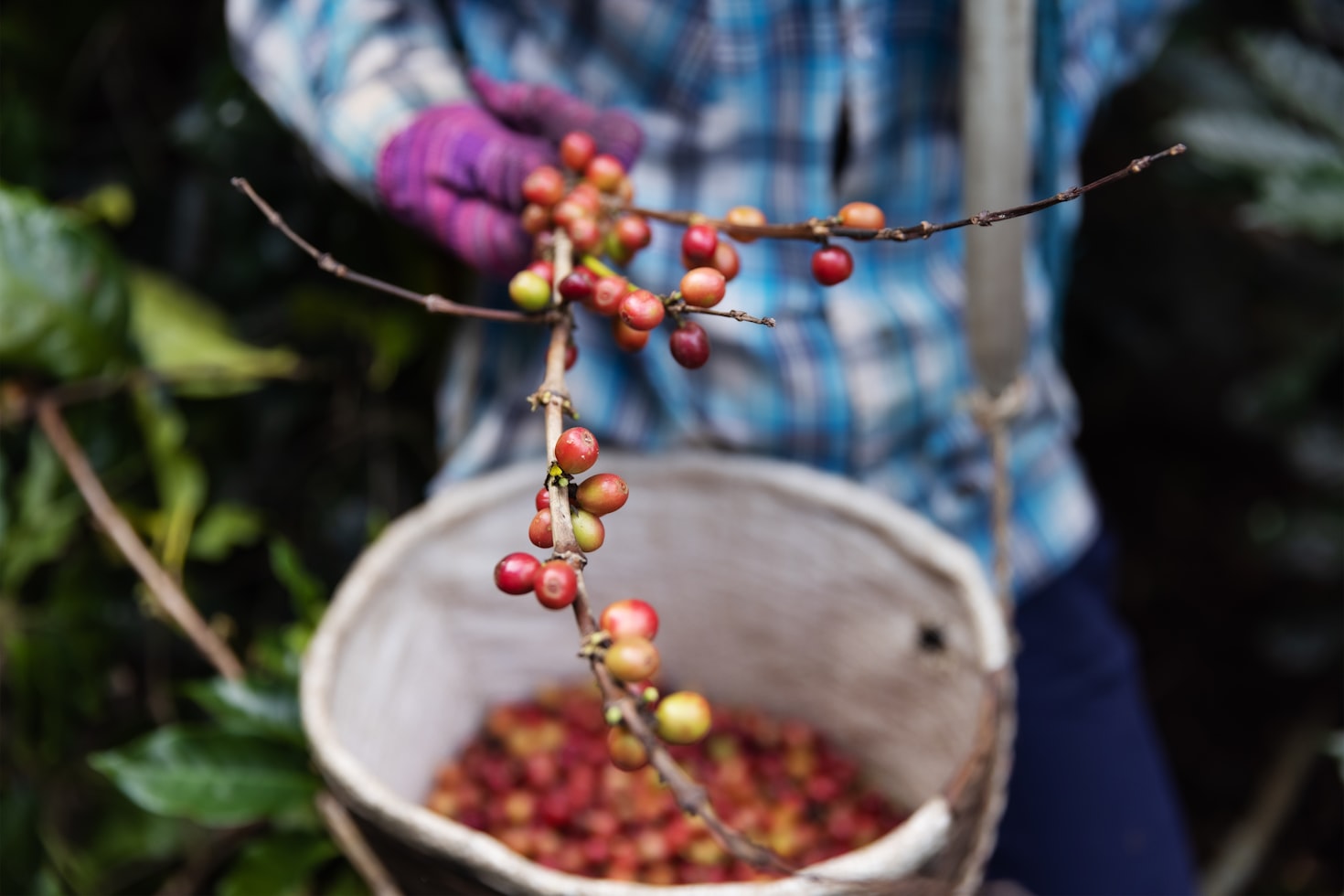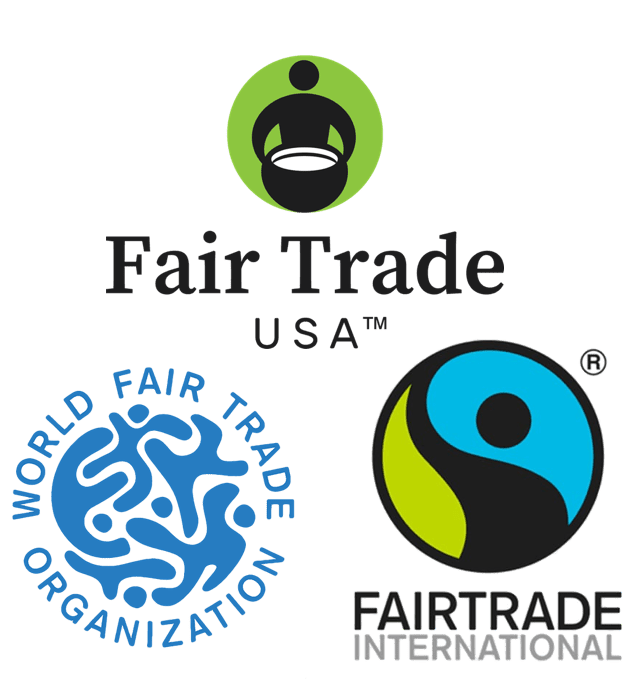Fair Trade coffee is a type of coffee that is certified to have been produced using fair trade standards. Fair trade coffee is made with beans that are grown and harvested in a way that meets certain social, economic, and environmental criteria.
The Fairtrade certification mark indicates that the coffee has been independently verified to meet these standards.
Coffee is the world’s most popular beverage, and it is a major export commodity. In 2021, global coffee exports were valued at US$36.3 billion.
Peru is one of the world’s leading coffee exporters. In 2020, Peru exported $60 million worth of coffee to other countries, making it one the world’s leading coffee exporters.
Here are some other interesting facts and figures about this beloved beverage.
- Approximately 2.25 billion cups of coffee are consumed around the world every day.
- Brazil is the largest producer of coffee, followed by Vietnam, Colombia and Ethiopia.
- The United States is the leading importer of coffee, followed by Germany and Italy.
- More than 60% of the world’s coffee is consumed in North America and Europe.
- The caffeine in coffee is a natural pesticide that helps protect the coffee plant from insects.
- It takes around 37 cups of water to produce just one cup of coffee.
- More than half of Americans say they cannot start their day without a cup of coffee.

The majority of the world’s coffee is produced in developing countries, and coffee production provides a significant source of income for many small-scale farmers.
However, the coffee industry has been criticized for its exploitative practices, including the payment of very low prices to farmers and poor working conditions.
Fair trade coffee is an attempt to address these issues and create a more sustainable and equitable industry.
The Benefits of Fair Trade Coffee
When you buy fair trade coffee, you can be confident that the farmers who produced it were paid a fair price for their work. Fair trade coffee is also typically grown in more sustainable ways, without the use of harmful chemicals.
We did a great podcast with Dean Cycon, founder of Dean’s Beans, on the topic of fair trade coffee and everything thats involved. Check it out below. Listen to more Causeartist podcasts like this here.
This makes it better for the environment and the people who live near the farms where it is produced.
In addition, fair trade coffee often has a more complex flavor than conventional coffee. This is because it is typically made with beans that are grown in richer soil and at higher altitudes.
When you choose fair trade coffee, you are supporting a more sustainable and equitable industry. You are also helping to improve the lives of small-scale farmers and their families who depend on the coffee trade for their livelihoods.
Fair Trade Coffee vs Regular Coffee
Fair trade coffee must meet certain criteria in order to be certified. These criteria are designed to promote social and economic justice, as well as environmental sustainability.
For example, coffee farmers must be paid a minimum price for their coffee that covers the cost of production. This price is set by Fairtrade International, an independent certification body.
In addition, coffee growers must be members of a fair trade-certified cooperative or organization. This ensures that they have a voice in the decisions made about the coffee industry and are able to receive a greater share of the profits.
Fair trade coffee is often more expensive than conventional coffee. This is because the farmers who produce it are paid fairly for their work, and the standards required for certification add to the overall cost.
However, many consumers are willing to pay more for coffee that they know has been produced ethically.
Fair Trade Coffee and Coffee Farmers
Fair trade coffee is a type of coffee that is produced and traded under fair and ethical conditions. This means that the coffee farmers and workers are paid fair prices for their coffee beans, and their rights and well-being are protected.
Here are some of the benefits that fair trade coffee offers to workers:
- Fair Prices: Fair trade coffee ensures that farmers are paid a fair price for their coffee beans, which can help them to sustain their livelihoods and invest in their communities.
- Workers’ Rights: Fair trade coffee guarantees that workers are treated fairly and have access to safe working conditions. This includes fair wages, safe working conditions, and the right to organize and collectively bargain.
- Environmental Protection: Fair trade coffee promotes sustainable agriculture practices and protects the environment. This includes reducing the use of harmful pesticides and fertilizers and promoting organic farming practices.
- Empowerment: Fair trade coffee empowers small-scale farmers and workers to improve their lives and communities. Through fair prices and community development programs, farmers can invest in education, healthcare, and infrastructure.
- Quality: Fair trade coffee is often of higher quality than conventionally traded coffee. This is because farmers are motivated to produce high-quality coffee beans to earn fair prices and secure long-term contracts.
How is Fair Trade Coffee Priced?
Fair trade coffee is priced based on several factors, including the cost of production, market conditions, and fair trade premiums. Here is a breakdown of how fair trade coffee is priced:
- Cost of Production: Fair trade coffee prices are based on the cost of production, including the cost of labor, equipment, and materials. This ensures that farmers receive a fair price that covers their expenses and allows them to sustain their livelihoods.
- Market Conditions: Fair trade coffee prices are also influenced by market conditions, such as supply and demand and fluctuations in global coffee prices. While fair trade prices may not always be higher than conventional prices, they provide farmers with stability and protection against price volatility.
- Fair Trade Premiums: In addition to the base price, fair trade coffee also includes a premium, which is paid directly to the farmer or cooperative. The premium is used to fund community development projects, such as education, healthcare, and infrastructure improvements.
Fair trade premiums are typically set at a fixed rate per pound of coffee, which varies by region and country. For example, in Latin America, fair trade premiums are typically around 20 cents per pound, while in Africa, they may be higher.
How to make sure you’re buying fair trade coffee?
When buying fair trade coffee, look for the Fairtrade certification mark on the packaging. This mark indicates that the coffee has been independently verified to meet fair trade standards.
Fairtrade certification is a voluntary process that companies can choose to go through in order to demonstrate their commitment to fair trade practices.
The certification process involves an independent assessment of the company’s policies and procedures to ensure that they meet Fairtrade standards.
Companies that are certified Fairtrade must adhere to a set of standards that aim to protect the rights and improve the working conditions of workers, as well as provide farmers and growers with a fair price for their products.
The Fairtrade certification mark is used to identify products that have been produced according to Fairtrade standards.
The most well known certifiers are Fairtrade International, The Fair Trade Federation, and FairTradeCertified.org. You can find these logo marks on many fair trade coffee brands in stores.

Fair Trade Coffee Examples
Deans Beans:
The mission of Dean’s Beans is to use high quality specialty coffee as a vehicle for progressive change throughout the coffee-lands of Asia, Africa and the Americas.
The company has been directly engaged in community development and activism for over twenty-five years now.
All of the high-quality specialty coffees are certified Organic, Fair Trade, and Kosher, and are roasted fresh to order in small batches at the companies beanery in Orange, MA. The vast use of pesticides in coffee production has serious impact on the ecology of the coffee-growing world and the health of farm communities.
Dean has committed his business career to only purchasing shade grown coffees that support healthy environments for coffee growers and protects critical migratory bird habitat. It is important to the company that the quality of coffee includes respect for the quality of life of our southern partners in the coffee world.
Refuge Coffee
Refuge Coffee is a nonprofit that provides living wage, full-time jobs, job training, and mentorship to resettled refugees. The heart of the mission is welcome.
The Refuge trainees drive that mission, welcoming the world at two coffee shops in Clarkston and downtown Atlanta and from bright red coffee trucks all over the city.
Every time you taste one of their delicious drinks or pastries you are providing wages for a full or part-time job for a resettled refugee or immigrant who is part of the job training program.
They are a 501c3 non-profit, that exists to serve the global community in Clarkston and Atlanta, Georgia. In addition to the job training program, they work to create a fun, multi-ethnic comfortable gathering place at all of their locations.
Equal Exchange
Equal Exchange is a fair trade coffee brand that was founded in 1986 with the mission of supporting small-scale farmers and their communities through direct trade.
The company sources its coffee beans from farmer cooperatives in Africa, Asia, and Latin America, paying fair prices for the beans and investing in community development projects.
Equal Exchange offers a wide range of coffee blends and single-origin coffees, all of which are certified organic and fair trade. In addition to coffee, the company also sells tea, chocolate, and other products that are sourced from small-scale farmers and cooperatives.
Overall, Equal Exchange is committed to promoting social and economic justice in the coffee industry while providing consumers with high-quality, sustainable products.
Check out more fair trade coffee examples.
By choosing fair trade coffee, you can help to create a more sustainable and equitable coffee industry. You will also be supporting small-scale farmers and their families who depend on the coffee trade for their livelihoods.







